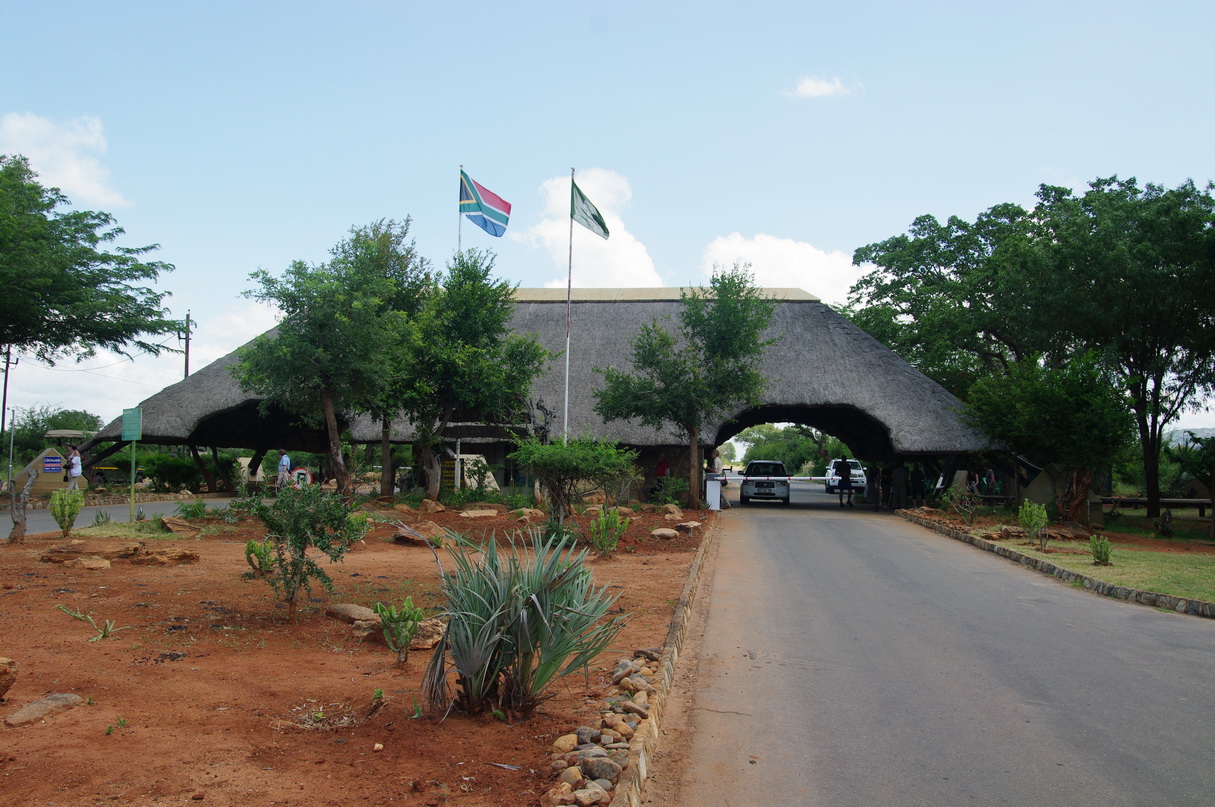This week, an elephant trampled a suspected poacher to death in the Kruger Park after he ran in to a breeding herd trying to escape rangers.

Kruger National Park’s Malelane gate. Picture: Wikimedia Commons.
Another three suspected poachers have been arrested in the Kruger National Park (KNP), this time in the Crocodile Bridge section at the south end of the almost 20 000km² reserve.
According to KNP spokesman Ike Phaahla, 26 suspected poachers have been arrested so far, with 14 firearms recovered.
In spite of the success, however, the poachers are not giving up, with at least 402 incursions into the park recorded.
This week, an elephant trampled a suspected poacher to death after he ran in to a breeding herd trying to escape rangers.
Elephants are notoriously protective of their calves and adult bull elephants in musth are dangerously aggressive.
ALSO READ: Elephants kill suspected poacher at Kruger National Park
According to Phaahla, rangers detected the spoor of three individuals early in the morning and went in pursuit of the suspected rhino poachers.
“The Airwing unit was called in to support the ground teams using a helicopter and a fixedwing airplane.
“Soon thereafter, one suspect was arrested. “After following tracks throughout the day, the two remaining suspects were apprehended in the late afternoon and handed over to the South African Police Service,” Phaahla said in an earlier statement.
“[Wednesday] was another long day in the field for our anti-poaching teams in difficult conditions but they displayed tenacity and excellent team work.
“The arrests bring the number of those arrested in the past five days to eight.
“In this time, three rifles, ammunition and hunting equipment were seized, boosting the morale of the rangers, aviators and K9 unit in the battle to protect and conserve rhinos in the KNP, which has borne the brunt of attack from international rhino poaching syndicates.”
The International Anti-Poaching Foundation (IAPF) reported it had has seized “a record 62 elephant tusks during the first three months of 2021, compared with 90 for the whole of last year, and arrested 148 poachers for a variety of offences”.
The suspected poachers were arrested in wildlife areas patrolled by the all-female Akashinga anti-poaching teams in the Zambezi Valley, in northern Zimbabwe, and also through the foundation’s investigations which support and drive the operations.
Its chief executive, Damien Mander, said in a statement the 62 tusks had been recovered in 19 separate ivory operations and 37 arrests had been made.
While it was often difficult to determine exactly when the ivory was poached, there was evidence some had been taken in the past few months, but some could also be older stockpiles, perhaps unable to be exported due to the Covid-19 lockdowns, Mander said.
“Also, with the travel restrictions, there are fewer tourists, guides, vehicles and boots on the ground in the wildlife areas and therefore poachers could be facing less resistance to getting in and killing animals.
“If we had accurate information with regard to exactly when the ivory was poached, then we could say what the poaching levels are doing, but all we’ve got to go on is our recovery rate,” Mander said.
So while more tusks were being recovered, it could be directly related to the poaching rate, but it was impossible to say for sure, he added.
Download our app




